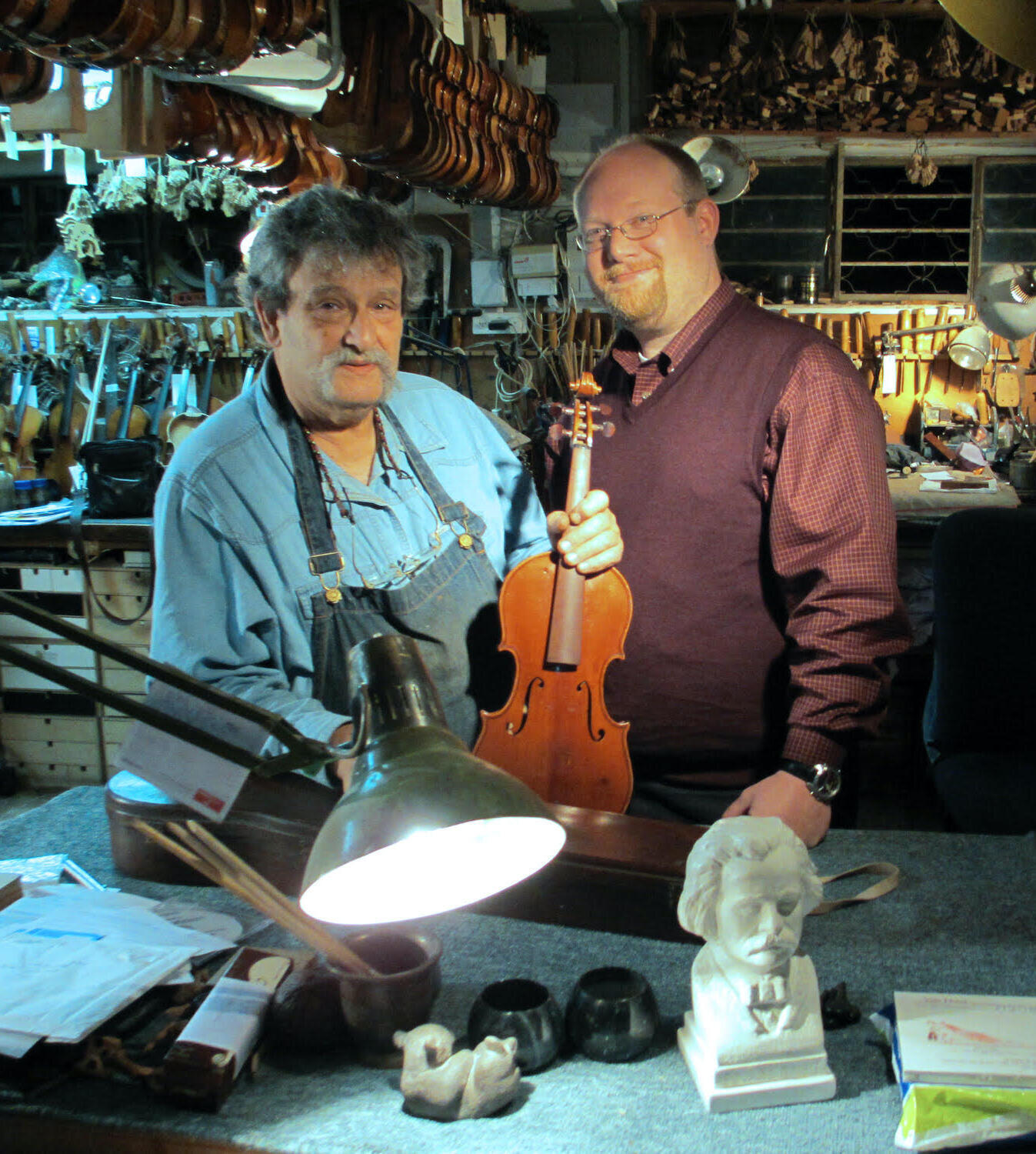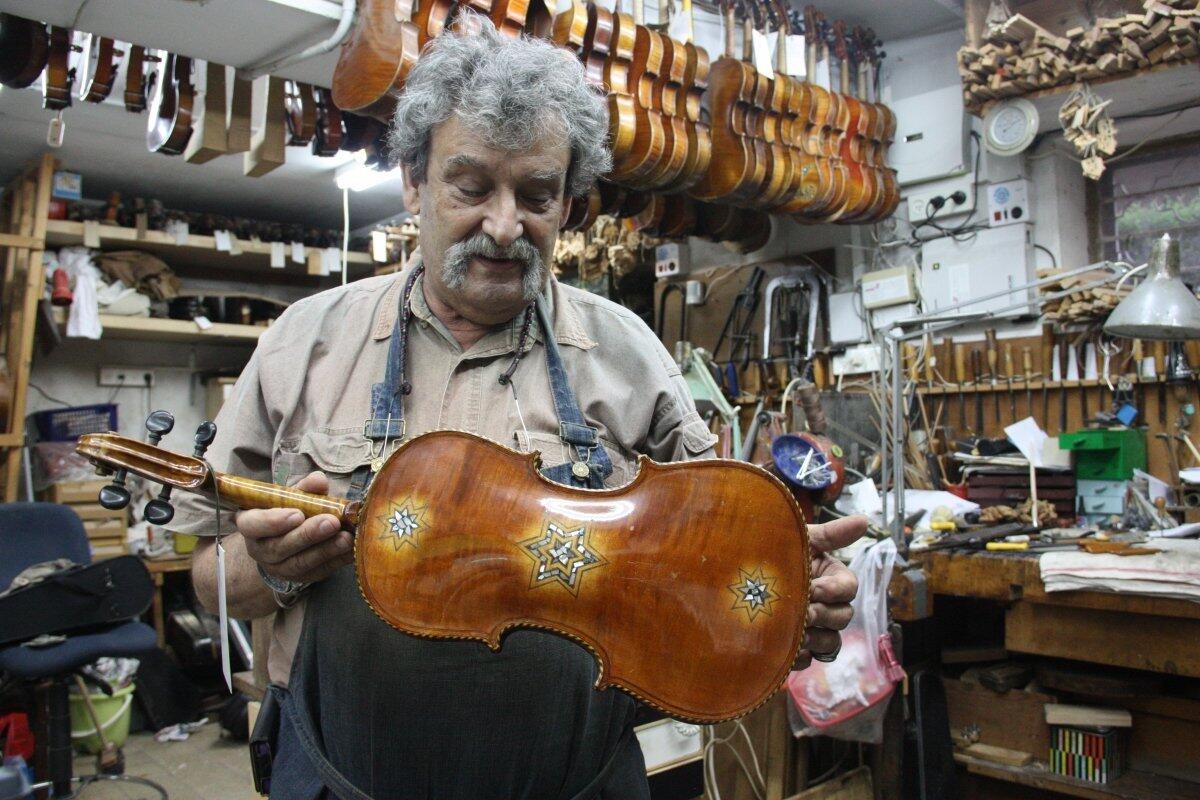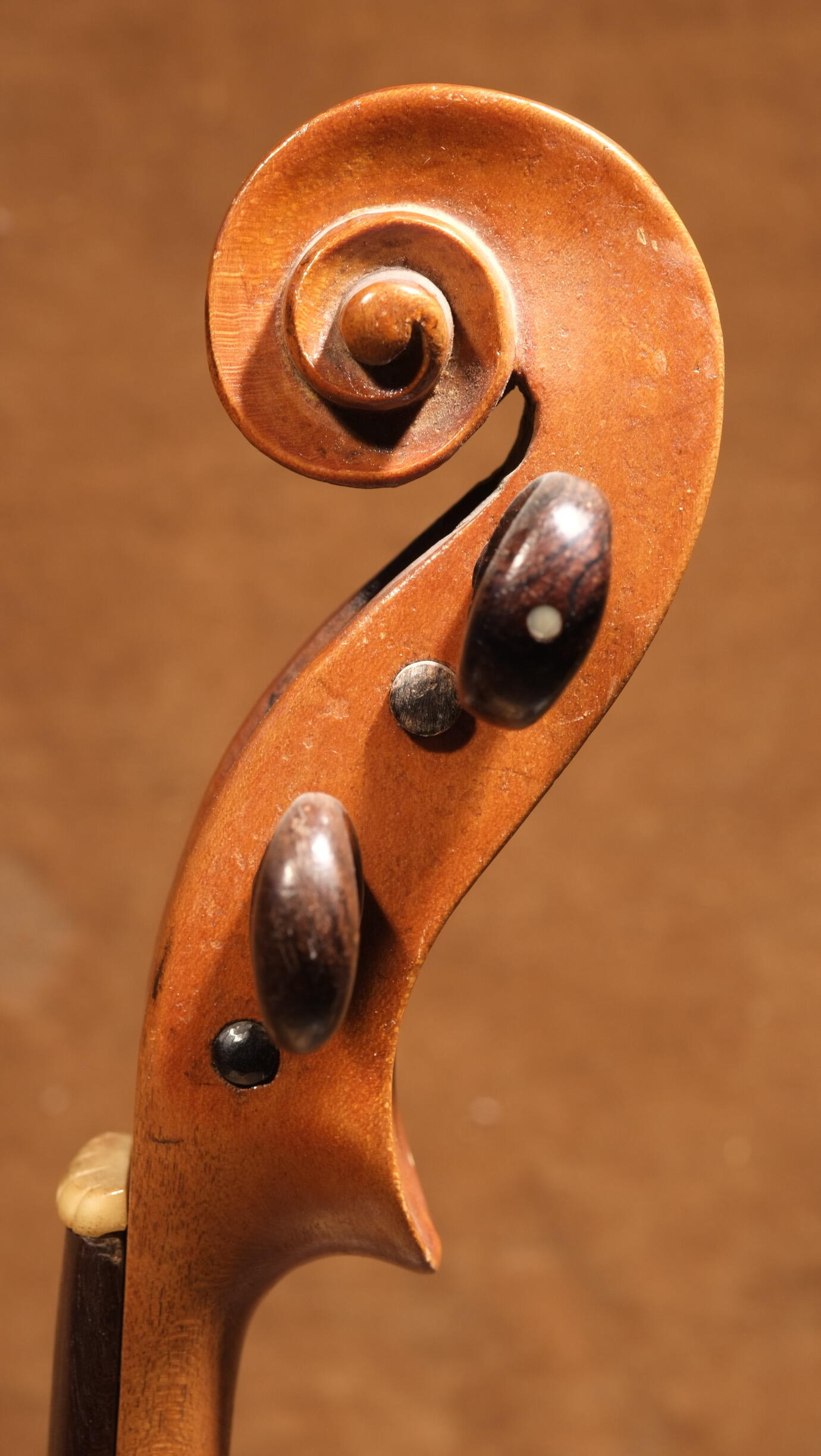
Aug. 17, 2021
Alum and author Jay Grymes is returning to Richmond to share ‘a story about humanity’
Share this story
Virginia Commonwealth University alum Jay Grymes views his trip back to Richmond in late September as a “full circle” moment. He will be in the city to share stories from his book, “Violins of Hope: Violins of the Holocaust — Instruments of Hope and Liberation in Mankind's Darkest Hour.”
Grymes’ book, which published in 2014, is a companion piece to the touring exhibit “Violins of Hope” that tells the stories of violins played by Jewish musicians during the Holocaust, and is in Richmond through Oct. 24. And his visit serendipitously coincides with the 30th anniversary of the start of his first year at VCU.
“My love for researching and writing was born while I was an undergraduate at VCU,” said Grymes, Ph.D., a professor of musicology at the University of North Carolina at Charlotte who graduated from VCU in 1995 with a bachelor’s degree in music education.
‘This is where my heart was from the very beginning’
A Richmond native, Grymes has dedicated his career to music.
“It’s something I love,” he said.
Grymes played the bassoon in high school and became familiar with VCU’s Department of Music in the School of the Arts when he started attending an annual woodwinds weekend festival. It was there that he met Bruce Hammel, D.M., an associate professor of music theory and bassoon.
“When it came time to pick a college, it was easy for me because I felt comfortable at VCU. This is where my heart was from the very beginning,” Grymes said.
He came to campus with the intention of being a band director. Grymes’ mother was a teacher and his father was the founding director of continuing education at J. Sergeant Reynolds Community College. “I thought I was going to go into music education,” he said. But his goal changed after taking two semesters of music history.
“Those two courses changed my life,” he said. “Later I got into researching and writing about music. My junior year at VCU was a huge turning point. It opened my eyes and expanded my horizons.”
During his senior year, he received a grant to pursue research “related to finding and identifying quality pieces for beginning bassoonists in order to establish a standard repertoire at the student level.” His work appeared in Notes, a publication of the Virginia Music Educators Association.
“That was the first time I ever published anything,” he said. “After seeing my byline, I was hooked. I loved the feeling of learning something no one else knew about and presenting that to the world at large in a way that hopefully was meaningful.”
“When it came time to pick a college, it was easy for me because I felt comfortable at VCU. This is where my heart was from the very beginning.”
Jay Grymes, Ph.D.
Hammel, a longtime VCU professor and coordinator of winds, brass and percussion in the music department, was a mentor to Grymes.
“He was influential in me being the person I am today. I followed in his footsteps,” said Grymes, who received master’s degrees in bassoon performance and musicology and a Ph.D. in musicology from Florida State University, which awarded him a faculty citation for Distinguished Achievement in Scholarly Research in Music.
“I think what impressed me most about Jay was his single-mindedness of purpose,” said Hammel. “When there was a goal to reach or project to complete, Jay would dive in with tremendous energy and enthusiasm. This included challenging skill development as a musician as well as many creative activities that he either initiated or joined.”
He sees Grymes’ ability to access and integrate all of his strengths in his creative and scholarly pursuits as a real asset.
“‘Violins of Hope’ illustrates this perfectly, I think,” Hammel said.

Telling the story of the violins
Grymes has written three highly specialized academic books, the first while he was a doctoral student at Florida State. “Violins of Hope” was his first trade book. It was recognized with a National Jewish Book Award in 2014 and received positive reviews beyond the publishing industry. The Academy Award-winning composer John Williams called it “a work of research and scholarship that forms one of the most moving chronicles in the history of Western music.”
While in Richmond, Grymes will speak at a community concert, Stories and Strings, hosted by the Weinstein JCC on Sept. 26. The concert will feature violins from the “Violins of Hope” collection. The violins also will be played in Richmond Symphony concerts on Sept. 9 and 10.
The Richmond exhibit features violins at three museums — the Virginia Holocaust Museum, Virginia Museum of History & Culture and the Black History Museum & Cultural Center of Virginia.
The violins on display and being played in Richmond were recovered and restored by Amnon Weinstein, an Israeli violin shop owner and master craftsman who lost 400 relatives in the Holocaust.
Grymes became familiar with the exhibit when the violins came to Charlotte in 2012. His interest in the violins stems from his background as a musician and a historian, he said.
“I am not Jewish, and I can’t play the violin, but I was fascinated by these stories,” he said.

Grymes first visited Weinstein in Israel in 2011, before the U.S. exhibit opened.
“Amnon told me, ‘this is not just a Jewish story. This is a story about humanity. Everyone needs to know these stories,’” Grymes said.
In doing research for his book, Grymes traveled to Tel Aviv, Jerusalem and Oslo, Norway, to interview family members of the survivors who owned the violins.
“The survivors had passed their stories to their children and grandchildren,” he said. “In the end, the story turned out to be about Weinstein along with the stories of the survivors.”
When Grymes was digging into the stories and historical background, he encountered a great deal of death and destruction.
“There were times when I would have to stop writing. I would have to come back to it because it was so difficult and overwhelming,” he said.
A ‘transformative and life changing’ experience
As he prepares to return to Richmond next month, Grymes says he looks at his days as a VCU student as a formative part of his life.
“I think of professors Sonia Vlahcevic and Terry Austin, who is director of bands. I spent so much time with them,” he said. “I don’t think it’s a coincidence that my job at UNC Charlotte is similar to VCU. It’s an urban school and it has a lot of one-on-one mentoring as well as small classes. I am doing the type of teaching that was my experience at VCU, which was transformative and life changing for me.”
He hopes to give back to his students what VCU gave to him, he said. Discovering his talent for writing helped him find himself.
“This is what I love to do — write, research and teach,” Grymes said. “It’s what fuels me every day.”
Subscribe to VCU News
Subscribe to VCU News at newsletter.vcu.edu and receive a selection of stories, videos, photos, news clips and event listings in your inbox.







